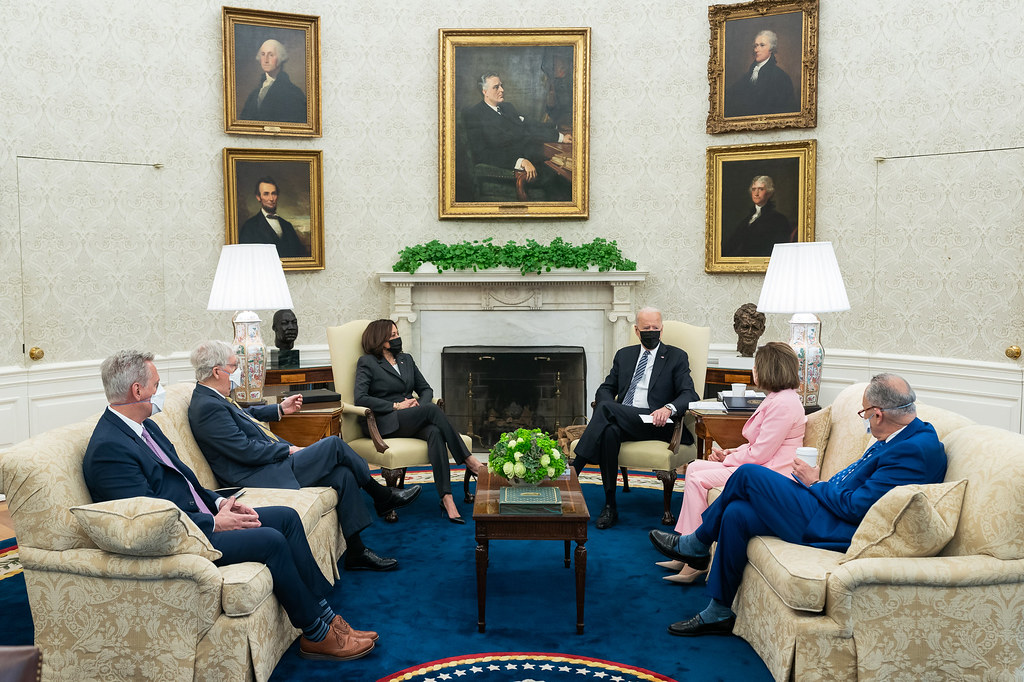Top photo: President Joe Biden and Vice President Kamala Harris meet with bipartisan Congressional leadership on May 12 in the Oval Office (Photo: Adam Schultz / White House)
Welcome to Factal Forecast, a look at the week’s biggest stories and what they mean from the editors at Factal. We publish our forward-looking note each Thursday to help you get a jump-start on the week ahead. If this email was forwarded to you, and you like what you see, you can subscribe for free.
A look ahead:
July 31/ U.S. federal debt limit deadline: The U.S. government is set to see its federal borrowing limit expire on Saturday after a two-year suspension passed in 2019 under former President Donald Trump. An upcoming vote in Congress to either raise or suspend the debt ceiling is the latest political minefield for lawmakers — with major repercussions for the fragile economic recovery.
- What’s happened so far: Congressional Democrats said they are “considering all options” to raise the borrowing limit or to suspend it again. Meanwhile, Republicans threatened to vote against an increase to the limit unless Congress first agrees to spending cuts or other measures, a reverse in recent position as GOP lawmakers agreed to raise or suspend the debt ceiling multiple times under the Trump administration.
- The impact: Failure to address the limit before congressional recess in August could risk defaulting on the nation’s debt, an unprecedented and potentially catastrophic outcome. Unless the debt ceiling is raised, the Treasury will need to start drawing on emergency accounts to pay the government’s tab. Yet with higher spending due to the coronavirus stimulus, Treasury Secretary Janet Yellen says the emergency reserves may not last long before the government would trigger a technical default.
Aug. 1/ Mexican corruption trial referendum: On Sunday and for the second time in less than two months, the Mexican people will vote on the direction of the country. This time, however, they’ll be asked a yes-or-no question on whether or not former presidents can be prosecuted.
- What’s happened so far: When President Andrés Manuel López Obrador was elected in 2018, he vowed to fight corruption in politics. In 2020, he said he didn’t want to put former presidents on trial, but, just a few months later, he called for a plebiscite to legalize the practice. Congress approved the first-ever referendum, but journalists criticized the wording of it as too vague. They also called it pointless, saying it’s already legal for ex-presidents to be prosecuted. And it may all be for naught because if turnout is under 40 percent Sunday, the vote is invalidated.
- The impact: If the measure is passed, it puts pressure on nearly all of Mexico’s living presidents. It could also inflame the feud between López Obrador and his immediate successor, Enrique Peña Nieto. But if the measure fails or is invalidated by a low turnout, it could lead to more criticism of López Obrador. The referendum is costing the country tens of millions of U.S. dollars as it experiences an economic downturn related to the pandemic.
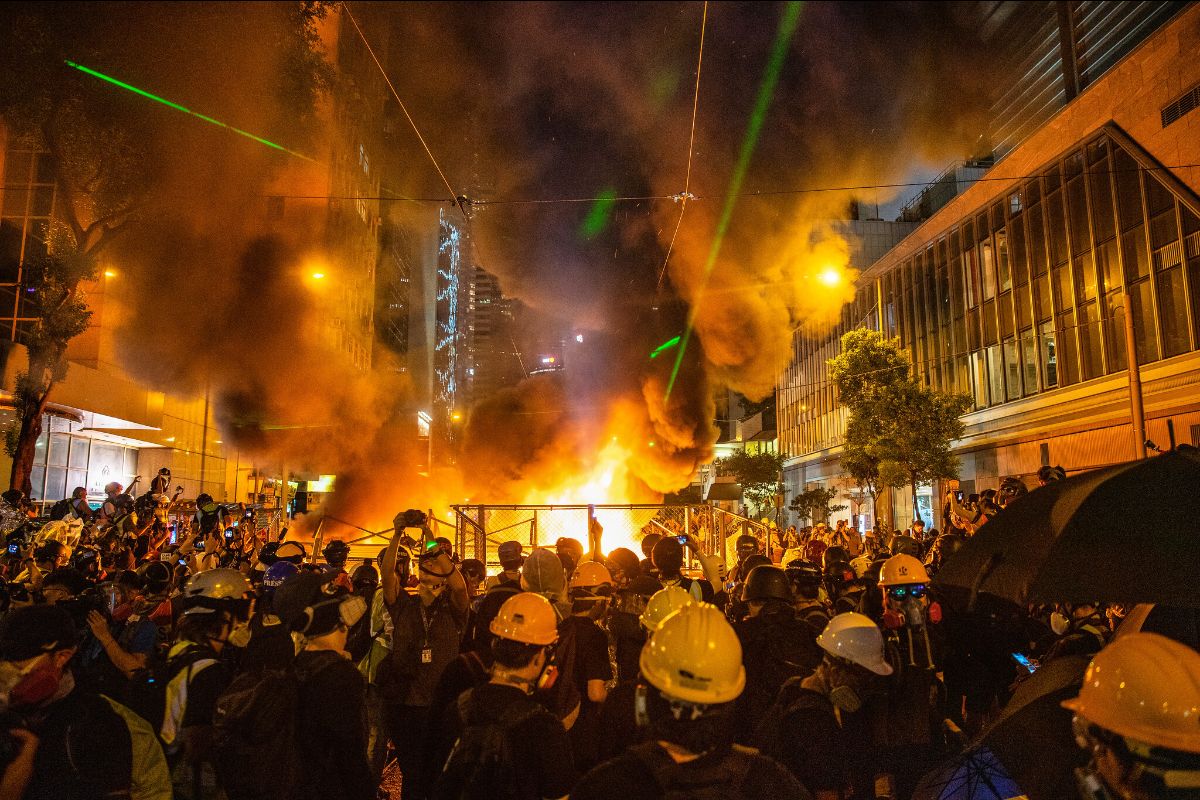
Aug. 1/ Hong Kong immigration law amendment: Sweeping new changes to Hong Kong’s immigration laws are scheduled to take effect on Sunday.
- What’s happened so far: Hong Kong’s legislature passed a new amendment in April meant to reduce the city’s asylum caseload and improve asylum application procedures. The bill includes a controversial clause giving the director of immigration the authority to decide whether a passenger or crew member may be allowed on board a carrier. These changes come as Hong Kong continues to experience a chilly political climate after a broad national security law came into effect last year.
- The impact: Critics of the bill fear the changes will grant immigration authorities “apparently unfettered power” to stop residents from entering or exiting the city, without restrictions on purpose. In response, Hong Kong’s government said the freedom to travel and right to enter or leave the territory is already guaranteed under the city’s mini-constitution, the Basic Law.
Aug. 3/ Mayoral primary elections in Detroit and Seattle: Municipal elections are set for Tuesday in two major American cities — Detroit and Seattle — in what could be a litmus test of voter sentiment in urban centers.
- What’s happened so far: In Detroit, a total of 13 candidates filed to challenge two-term incumbent Mike Duggan, including one-time Deputy Mayor Anthony Adams. After taking more than 70 percent of the vote four years ago, Duggan is considered the prohibitive favorite and sports a wide fundraising advantage. Meanwhile, Seattle voters are seeking a successor to Jenny Durkan, with former City Council President Bruce Harrell and current President Lorena González among the top contenders.
- The impact: While the two cities have experienced wildly disparate fortunes in recent years, voters in both places are likely weighing several of the same key issues, including the economic recovery from the pandemic and a nationwide rise in violent crime.
Aug. 3/ Poland Constitutional Tribunal ruling: Poland’s Constitutional Tribunal is expected to reach a decision Tuesday on interim measures imposed on the country’s judicial system by a top European Union court. The standoff between Poland and the EU centers on controversial changes that critics say put Poland’s justice system under political control.
- What’s happened so far: In 2020, the European Court of Justice the suspension of a new chamber at Poland’s Supreme Court set up to discipline judges and prosecutors. Critics say the chamber is a tool to sanction those who oppose the government’s changes to the judiciary — a claim the government denies. Poland’s constitutional court in July ruled that the EU court injunction is invalid, saying that, though Poland has been an EU member since 2004, domestic issues regarding the judiciary remain under the purview of Polish authorities.
- The impact: The Constitutional Tribunal is expected to rule on whether EU law takes precedence over the country’s constitution. Following the July decision, legal observers see the tribunal — largely composed of Polish government loyalists — as having undermined EU laws within the country and even a step away from the bloc. The upcoming ruling also comes at a time when the EU has struggled to address concerns of rule-of-law backsliding in some member states.
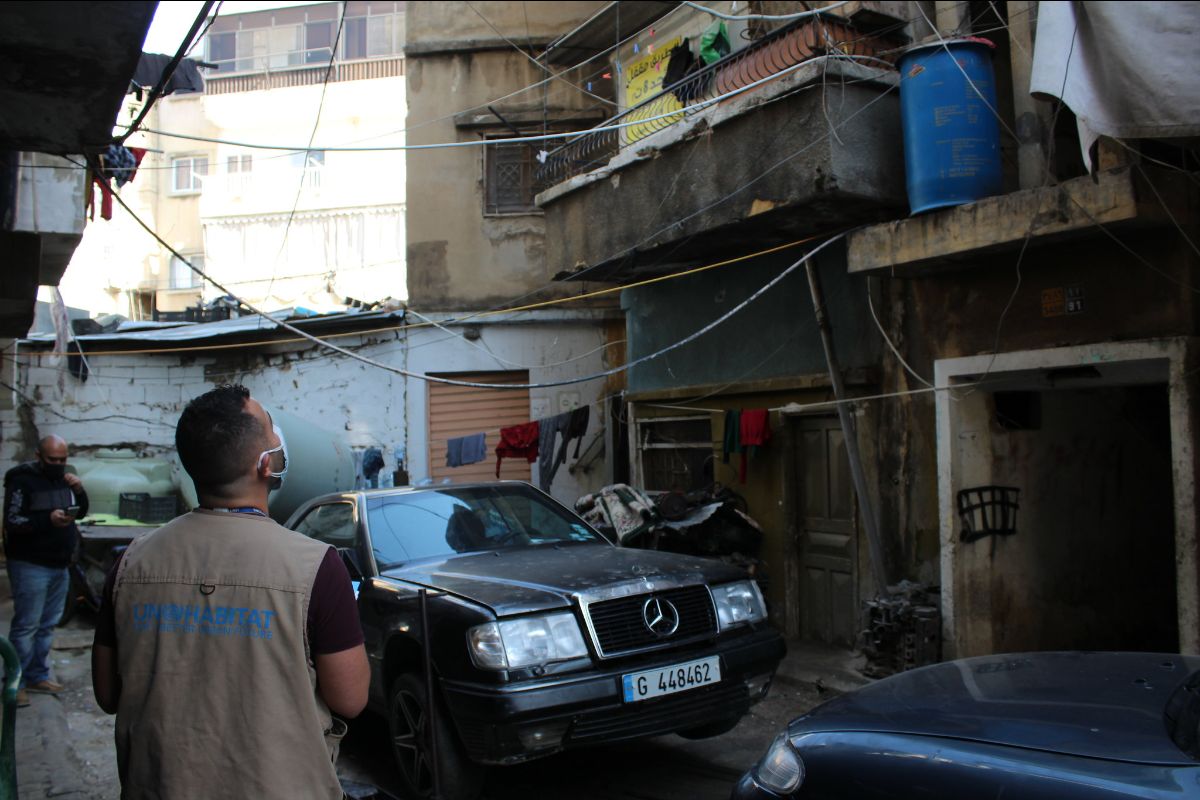
(Photo: UN-Habitat Lebanon)
Aug. 4/ Beirut explosion anniversary: France will host an international aid conference for Lebanon on Wednesday as the country marks the first anniversary of the devastating Beirut port explosion. The anniversary comes amid a worsening financial crisis and widespread protests over economic conditions.
- What’s happened so far: Lebanon has faced a great deal of economic and political strife over recent years, but nothing compared to the devastation wrought by the Beirut port explosion that killed nearly 200 people, injured thousands and caused billions of dollars worth of damage. The country’s prime minister resigned amid accusations surrounding the poorly stored explosives. The appointment of the country’s richest man as prime minister-designate, however, has further inflamed tensions with protesters who called for a new leader outside the elite.
- The impact: Lebanon is currently fighting to avoid total economic collapse, and this conference is expected to raise billions of dollars in aid and more in commitments to help reconstruct the devastated city and jump start the economy. If the appointment of Najib Mikati as prime minister fails, the country will remain in political deadlock.The UN, meanwhile, issued a stark warning that the country’s water system faces total collapse in coming months as shortages take hold with millions of people at risk of losing access to clean water.
Aug. 5/ Swearing-in of Iranian President-elect Raisi: Iran will undergo its first presidential leadership change since 2013 on Thursday, with conservative President-elect Ebrahim Raisi taking office after winning a heavily engineered election with nearly 62 percent of the vote.
- What’s happened so far: Raisi, the former judiciary chief and noted favorite to succeed Supreme Leader Khamenei, will take over for outgoing reformist President Hassan Rouhani after a momentous eight years that included the 2015 nuclear agreement with the United States and other global powers. Raisi’s election was notable for the extent to which Iran’s powerful Guardian Council engineered his victory, as well as the low voter turnout.
- The impact: The inauguration coincides with multiple noteworthy events involving Iran, both foreign and domestic. At home, Raisi will instantly have to contend with ongoing protests due to water shortages in the country’s southwest. Raisi’s response to protests at home is worth monitoring given his infamous role in thousands of extrajudicial killings. Abroad, he will inherit indirect talks with the United States to resume compliance with the nuclear agreement in exchange for Washington lifting crippling sanctions. Also watch for Saudi Arabia to potentially send a representative to the ceremony, which could mark a momentous shift as talks continue between the two rivals.
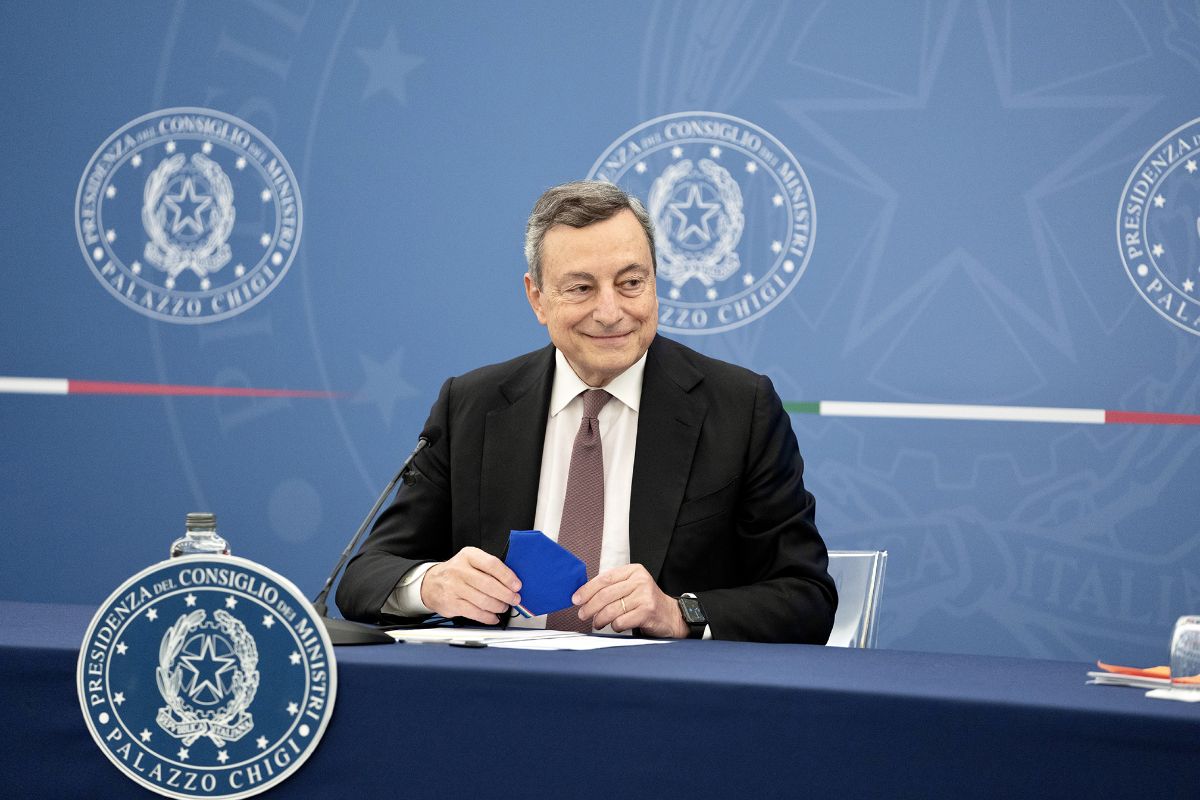
(Photo: Italian Government)
Aug. 6/ Italy coronavirus pass: On Friday, Italy will join a handful of European countries introducing a mandatory coronavirus vaccination certificate for access to most indoor venues. To be eligible for a pass, all Italians aged 12 years and above will need to prove they have either received at least one dose of the coronavirus vaccine, recovered from coronavirus in the last six months or tested negative in the last 48 hours, to dine indoors, attend sports events or enter cinemas and gyms.
- What’s happened so far: Coronavirus cases have risen sharply in the country, widely believed to have been fuelled by massive street celebrations following Italy’s Euro 2020 win early July. On July 22, Italy’s cabinet approved a mandate calling for a pass to regulate indoor activities. In announcing the new decree, Prime Minister Mario Draghi said the pass is “not an arbitrary act,” but a “mandatory condition for reopening” the country.
- The impact: While there were some small-scale protests across Italy on July 25 following the announcement, online vaccination booking portals reportedly “struggled to cope” with a dramatic increase in bookings. Local governments said they saw between 15 and 6,000 percent increase in appointments just 24 hours after Draghi’s speech. Italy’s coronavirus commissioner Monday said the country is on track to vaccinate 80 percent of the population by the end of September, a number sufficient to achieve herd immunity.
Aug. 6/ New protests planned in Bogotá: Several Colombian unions have called for fresh demonstrations in Bogotá on Friday, the day the city commemorates its 483rd anniversary, demanding their requests for better life and working conditions be met.
- What’s happened so far: In late April this year, protests broke out across Colombia after the government proposed a controversial tax reform measure that would increase tax on basic products and services. The bill was scrapped, but demonstrations continued with Colombians demanding healthcare reforms and an end to police brutality. While the country’s ombudsman reported more than 50 deaths in clashes between security forces and demonstrators, human rights groups claim the number is much higher. Some 2,300 people, including security forces, were also injured.
- The impact: The new demonstrations follow weeks of relative calm after unions agreed to suspend marches while promising to continue to fight for social and economic reforms. But fresh unrest could spark as Congress prepares to open its new legislative year, with new tax reform bills proposed. Union representatives also say they are waiting for a response on 10 bills presented by the National Unemployment Committee, including the creation of a basic income.
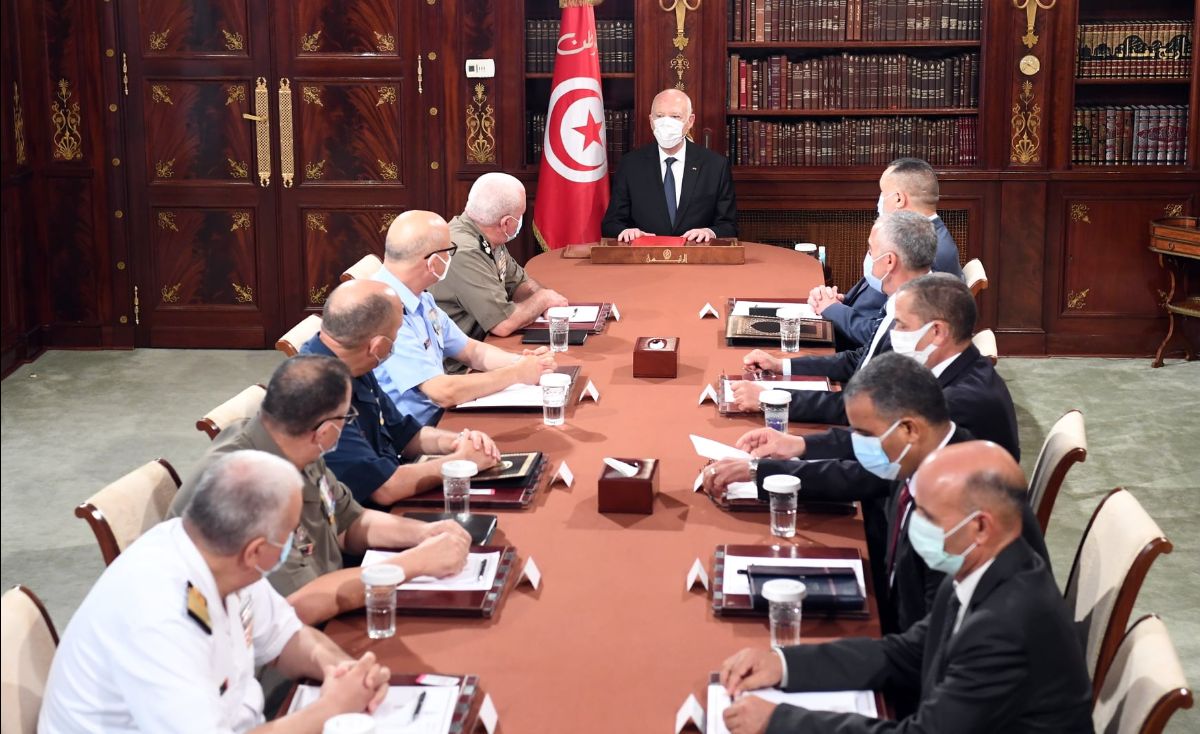
(Photo: Tunisian Presidency / Twitter)
What else matters:
Tunisia political crisis: Saddled with debt and polarization between Islamists, liberals and nationalists, Tunisia appears to be reversing course following a decade of democratic advancement. On July 25, President Kais Saied seized power from the prime minister, suspended parliament, shut down critical media and banned protests for a month. The measures effectively shut out of politics the Islamist Ennahda Movement, who held the most seats in parliament, though Saied’s stated aims were fighting corruption and what he called “conspiracies” against the state.
- Watch for: With no parliament or constitutional court in place, combined with Saied’s decreed restrictions, the president has effectively put his country under a one-man rule that prevails across most of the Middle East. International reaction hasn’t been uniform, with pro-Islamist Turkey issuing a mild condemnation, while Saudi Arabia and UAE, which supported the 2013 Egyptian military coup against Islamists, have mostly stayed silent. The United States said it’s monitoring the situation though it still hasn’t determined if what took place is a coup. Inside Tunisia, protests are so far brief and relatively non-violent. President Saied hasn’t laid out a long-term plan for transition, though his actions reflect a dramatic shift in what Freedom House ranks as the most-free Arab nation.
Armenia-Azerbaijan clashes: Renewed sporadic clashes between Armenia and Azerbaijan have intensified in recent weeks, with multiple soldiers killed and injured and even the mayor of Yeraskh, Armenia, injured. While both sides continue to largely adhere to the agreement that ended last year’s bloody six-week conflict, tensions have escalated over the last month or so, with firefights reported along multiple sectors of contact, including Artsvashen and the Azerbaijani enclave of Nakhchivan.
- Watch for: While fighting has been reported over the past month along fronts from last year’s war, such as Kalbajar, multiple other fronts have also witnessed exchanges of gunfire that have resulted in deaths and injuries on both sides. Nakhchivan, an Azerbaijani enclave separated from the rest of Azerbaijan, has seen multiple gunfire exchanges, particularly worrying given the concentration of peacekeeping forces along the frontlines of the disputed Nagorno-Karabakh region, far from this contact point. The most recent clashes geographically mirror last July’s Tavush conflict which directly preceded the larger war that killed thousands. If these clashes metastasize into the disputed Nagorno-Karabakh region like those did, the outcome may be similarly catastrophic.
Extended outlook: What’s on our radar in the coming weeks
July 30: Planned launch of Boeing Starliner Spacecraft 2
July 31: U.S. federal debt ceiling deadline
Aug. 1: Mexican corruption trial referendum; Hong Kong immigration law enters into effect
Aug. 2: 54th ASEAN Foreign Ministers’ Meeting
Aug. 3: Special election primaries for Ohio’s 11th and 15th congressional districts; National Night Out in the U.S. against crime; mayoral primary elections in Detroit and Seattle; Poland Constitutional Tribunal on human rights ruling
Aug. 4: International conference in support of Lebanese people
Aug. 5: Swearing-in of Iranian President-elect Raisi
Aug. 6: New protests planned in Bogotá; Italy coronavirus pass comes into effect; Canada border workers could begin strike
Aug. 8: Olympics closing ceremony
Aug. 9: Canada opens border to vaccinated Americans
Aug. 10: 2021 Australian census
Aug. 12: Zambia general election

